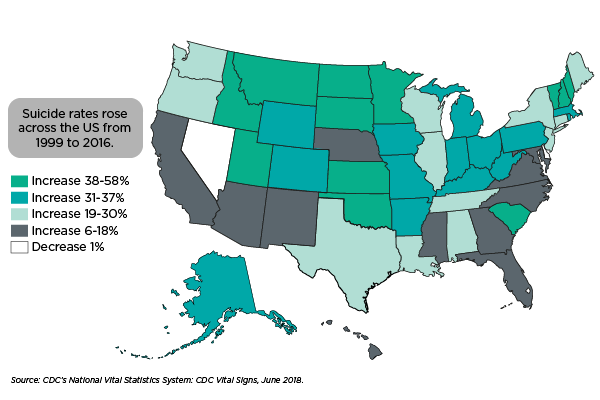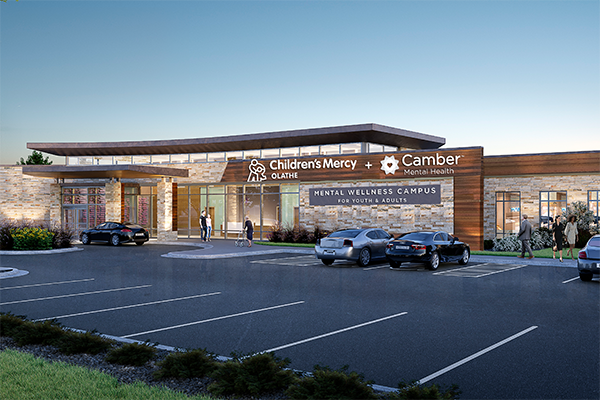A Nationwide Crisis: The Shortage in Children’s Psychiatric Treatment

If you or someone you know is considering suicide, call the Suicide & Crisis Lifeline at 988. It is available 24 hours a day, 7 days a week. All calls are confidential.
As a parent, you never want to see your child suffer or in pain, and when these challenges are related to mental health, the roadmap to healing becomes more complex. A child or adolescent who is experiencing a mental health crisis is struggling with suicidal thoughts, depression, anxiety, a history of trauma, substance abuse, or other mental health challenges. When a mental health crisis occurs, it is critical to intervene with professional help immediately to prevent long-term negative impacts. Unfortunately, families nationwide are struggling to get mental health care for their children when they need it most.
If you know a child struggling with their mental health, we’re here to help. Call us at (913) 890-7468 or fill out this form.
Children Waiting Days or Weeks While in Crisis
Parents with a child in crisis are going to emergency rooms across the country, only to be told their child will have to be placed on a waitlist for inpatient mental health treatment. A report from Cynthia McFadden of NBC News called “Shortage of psychiatric hospital beds shortchanges American children” shows that a child at one Connecticut hospital had to wait 40 days before an inpatient bed became available.
 While there’s been a 40% increase in psychiatric visits to emergency rooms over the past few years, there has also been a 17% decline in psychiatric beds available in state hospitals. As a result, some emergency rooms have stretchers in their hallways with children waiting to be admitted for inpatient mental health treatment. A parent can take their child home still needing acute treatment, but depending on the hospital’s policies, they risk being removed from the treatment waitlist.
While there’s been a 40% increase in psychiatric visits to emergency rooms over the past few years, there has also been a 17% decline in psychiatric beds available in state hospitals. As a result, some emergency rooms have stretchers in their hallways with children waiting to be admitted for inpatient mental health treatment. A parent can take their child home still needing acute treatment, but depending on the hospital’s policies, they risk being removed from the treatment waitlist.
In Kansas, the increased demand is similar. While Camber Children’s Mental Health (previously KVC Hospitals) has two children’s mental health treatment centers in the state, it had to decline admissions to over 2,000 youth last year because they were at full capacity.
McFadden wrapped up her report stating, “One thing nearly everybody seems to agree on is that until insurance pays more consistently and fully for children’s psychiatric beds, they will remain scarce.”
Camber is working with legislators, managed care organizations, private health insurance providers, donors and foundations to develop a range of solutions to this crisis.

Breaking Down the Stigma and Preventing Crisis
As suicide rates continue to climb to all-time highs, it’s imperative that mental health treatment becomes a central focus within our healthcare systems. Understanding mental health challenges as brain disorders and normalizing conversations about mental health will reduce stigma and save lives.
There are many preventative steps you can take to help a child or teen before they experience a crisis. Here are a few examples:
- Tell them that they matter. Positive reinforcement is important.
- Identify positive supports in their life (such as school, church, sports) and work together.
- Create opportunities for them to talk about their emotions. Actively listen.
- Encourage involvement in extracurricular activities and volunteering.
- Teach them healthy habits for caring for their body and brain.
- Work with them on stress tolerance and coping skills.
- Help them identify safe people, safe activities and safe places.
- Encourage therapy; you don’t have to be in crisis to seek help.
“Children are struggling, and their families feel helpless and don’t know where to turn for help. If we want to build healthy communities, we must invest in the health and wellbeing of every person, starting as early as possible.”
Ryan Speier, Former President of Camber
Expanding Treatment Options in the Midwest
As a mental health treatment provider with two inpatient facilities in Kansas and one residential program in Missouri, Camber sees the impacts of the bed shortage firsthand.
“In 2018, Camber cared for nearly 3,000 youth and adults,” said Jason Hooper, President and CEO of KVC Health Systems. “Still Camber was unable to serve over 2,000 additional youth due to lack of capacity.”
 Responding to this overwhelming demand for more emergency mental health care for children and adolescents, Camber is opening a new 54-bed youth mental health treatment center in Wichita, Kansas in 2019. Our HOPE LIVES Campaign serves to raise $7 million to help fund the new children’s mental health treatment center. With the help of The Sunderland Foundation, donors from 14 Kansas communities, and a J.E. & L.E. Mabee Foundation challenge grant, our HOPE LIVES Campaign is steadily progressing toward the goal.
Responding to this overwhelming demand for more emergency mental health care for children and adolescents, Camber is opening a new 54-bed youth mental health treatment center in Wichita, Kansas in 2019. Our HOPE LIVES Campaign serves to raise $7 million to help fund the new children’s mental health treatment center. With the help of The Sunderland Foundation, donors from 14 Kansas communities, and a J.E. & L.E. Mabee Foundation challenge grant, our HOPE LIVES Campaign is steadily progressing toward the goal.
Learn more about the plans for our new treatment center and how you can help by visiting cambermentalhealth.org/wichita or become part of our Camber Wichita team by applying at cambermentalhealth.org/careers.
Learn more about suicide prevention and what you can do to help someone in crisis.





